Building Minds, Connecting Hearts: Trivia's Cultural Impact on U.S. National Trivia Day

Discover the profound impact of trivia, transcending as an integral part of American culture and enriching the tapestry of knowledge and shared experiences
On U.S. National Trivia Day, a couple of questions for trivia enthusiasts: Which country hosts the longest-standing trivia championship? What about the largest trivia contest globally? And who holds the record for all-time game show winnings? Lastly, which is the most downloaded trivia app worldwide?
There is hardly an individual unfamiliar with the term "trivia," a ubiquitous cultural phenomenon embraced through various mediums. Whether answering questions on television or actively participating in board games, video games, or trivia nights at local establishments, the allure of trivia has only grown, with nearly everyone engaging in it at some point. Therefore, trivia as an entertainment genre has undoubtedly become an integral part of American culture, enhancing collective knowledge and experiences. So significant it is that it has evolved from a parlor game to a phenomenon celebrated annually on January 4th, marking U.S. National Trivia Day.
Although American librarian Robert L. Birch embedded trivia into the cultural calendar in 1980, urging individuals to partake in the diverse landscape of knowledge through friendly competition, trivia as a popular activity, as we recognize today, had its roots in the 1960s. “Glorious Entertainment,” proclaimed a headline from the Columbia Daily Spectator in February 1965, encapsulating the enduring appeal of trivia as a pastime that has woven itself into the cultural fabric of the United States. Since 1966, the U.S. has been home to two world-long-standing championships: the Great Midwest Trivia Contest at Lawrence University and the Williams Trivia Contest. It also hosts the largest trivia contest globally, held at the University of Wisconsin-Stevens Point’s college radio station since 1969, with a marathon of knowledge spanning an impressive over 50 consecutive hours, featuring around 400 teams and up to 150 players each.
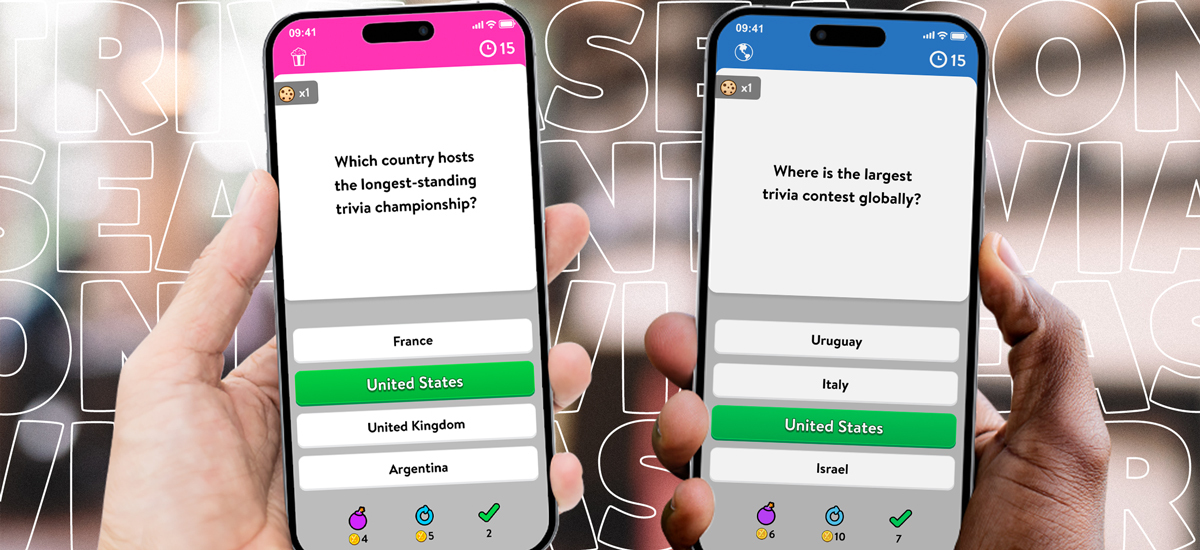
Contemporaneously, around the 1960s, trivia knowledge dominated American TV and left an indelible mark, exemplified by iconic shows that have earned, for example, an astonishing over 40 Emmy Awards as game shows. Contestants on some of these TV trivia shows have achieved substantial winnings, with figures like Ken Jennings amassing more than $4,5 million, underscoring the rewards tied to trivia prowess.
Leveraged by the extensive reach of television and possibly owing to its collegiate origins, urban centers and college towns, including major cities like New York, Los Angeles, and Chicago, have emerged as focal points for trivia enthusiasts. The phenomenon of trivia nights has experienced widespread growth, with over 10,000 establishments throughout the U.S. hosting events. While determining the exact count proves challenging due to the decentralized nature of these gatherings, estimates indicate a substantial network of bars, pubs, and establishments providing a platform for millions to participate in this cultural pastime.
The tremendous success of trivia TV shows, the proliferation of trivia nights, and its origins in college environments have facilitated the seamless integration of trivia into American television series narratives. The cultural association of trivia, fostering friendly competitions in various settings, can be observed in several acclaimed sitcoms that often incorporate real activities or routines into fictional scripts to resonate more closely with their audiences. For example, cherished characters from more than a dozen series have been found engaging in trivia night bars or pub quizzes, while other series have even explored trivia in the workplace or its role in family dynamics and community events.
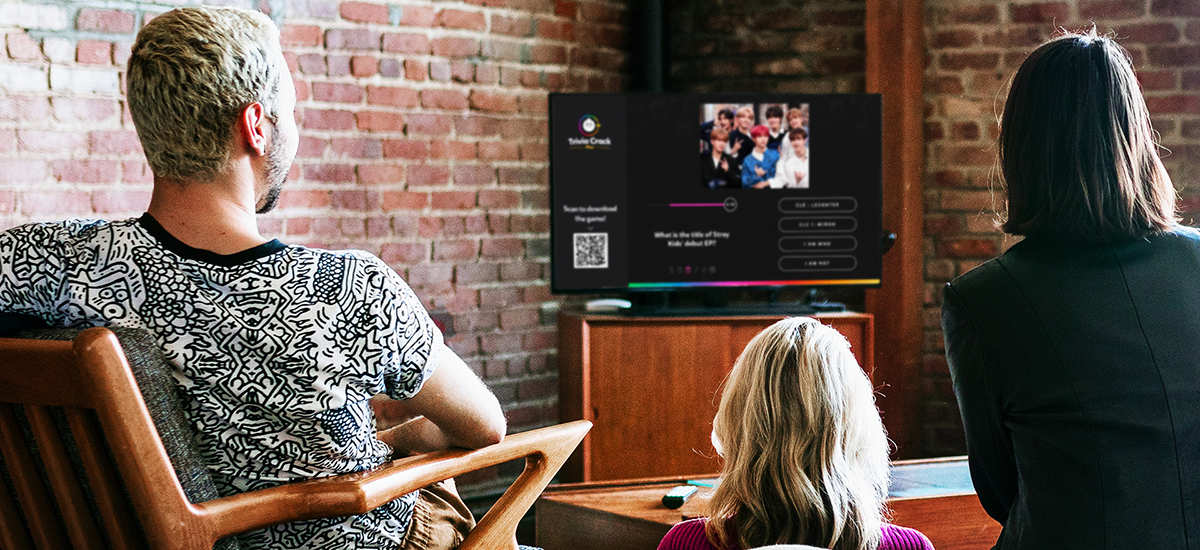
The global surge in trivia's popularity found a new frontier in mobile applications, with the United States at the forefront. For instance, Trivia Crack, the world's most successful trivia app since its release in 2013, claimed its dominance by holding the top position on the U.S. iOS App Store for 66 consecutive days, boasting over 20 million daily active users by 2015. It continues to hold the leadership as the most downloaded trivia app globally. Also, since 2017, the disruptive entry of other mobile apps offering cash prizes in every game has further propelled the local phenomenon, with cumulative earnings occasionally surpassing the $10,000 mark.
As we celebrate National Trivia Day, it is evident that trivia has transcended its trivial origins, becoming a unifying force that builds minds and connects hearts across the United States. In the pursuit of knowledge and the joy of shared experiences, trivia continues to bridge gaps and foster connections, reminding us that even in the seemingly trivial, there lies a powerful tool for building community and enriching our cultural landscape.
Moreover, delving into the health benefits of trivia reveals its positive impact on mental well-being and sociability, forming the basis for a deeper exploration. The cognitive stimulation and social engagement inherent in trivia contribute not only to the enrichment of knowledge but also to the enhancement of mental acuity and the strengthening of social bonds. Join us as we unravel the hidden dimensions of trivia's influence on our minds and connections, fostering a healthier and more vibrant community.
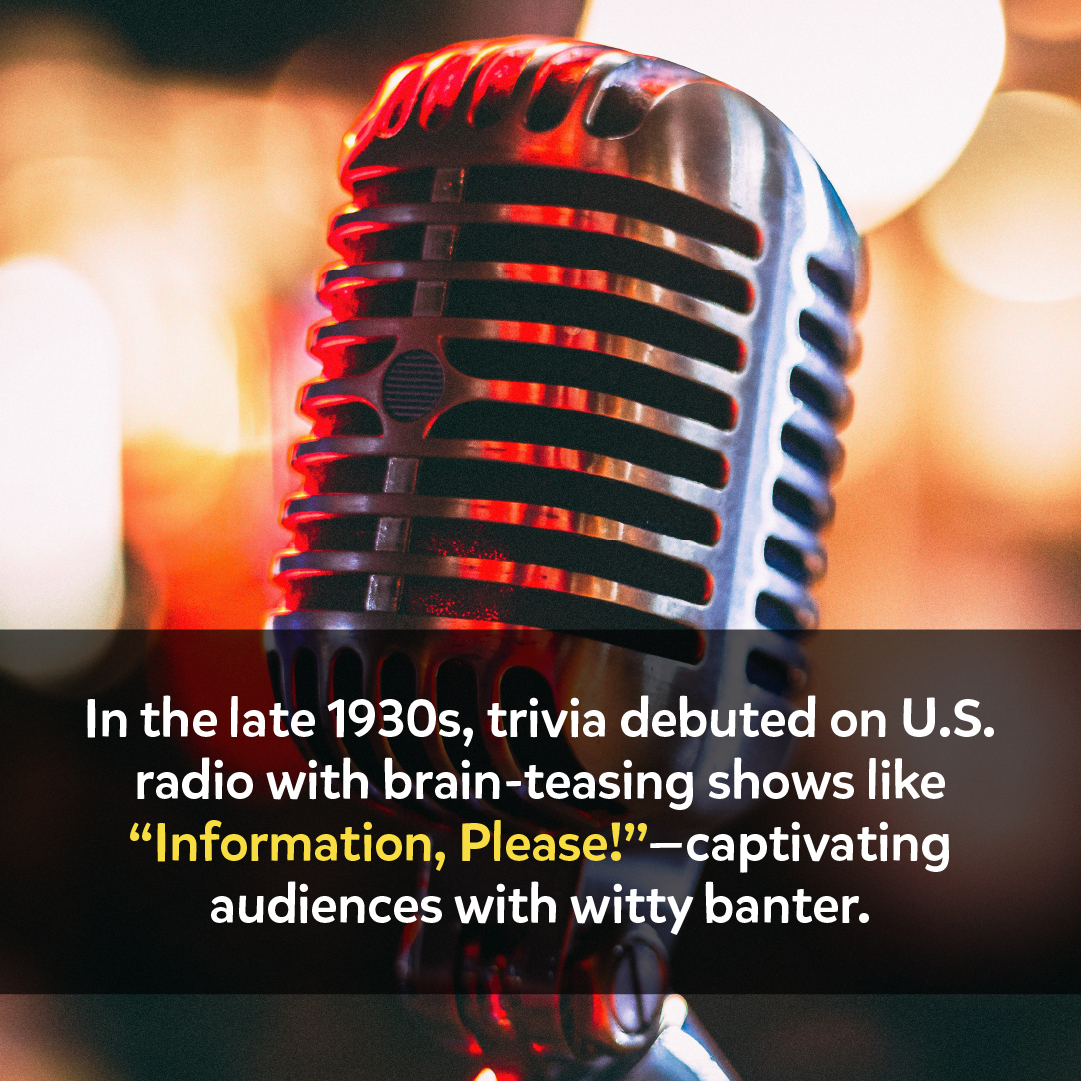
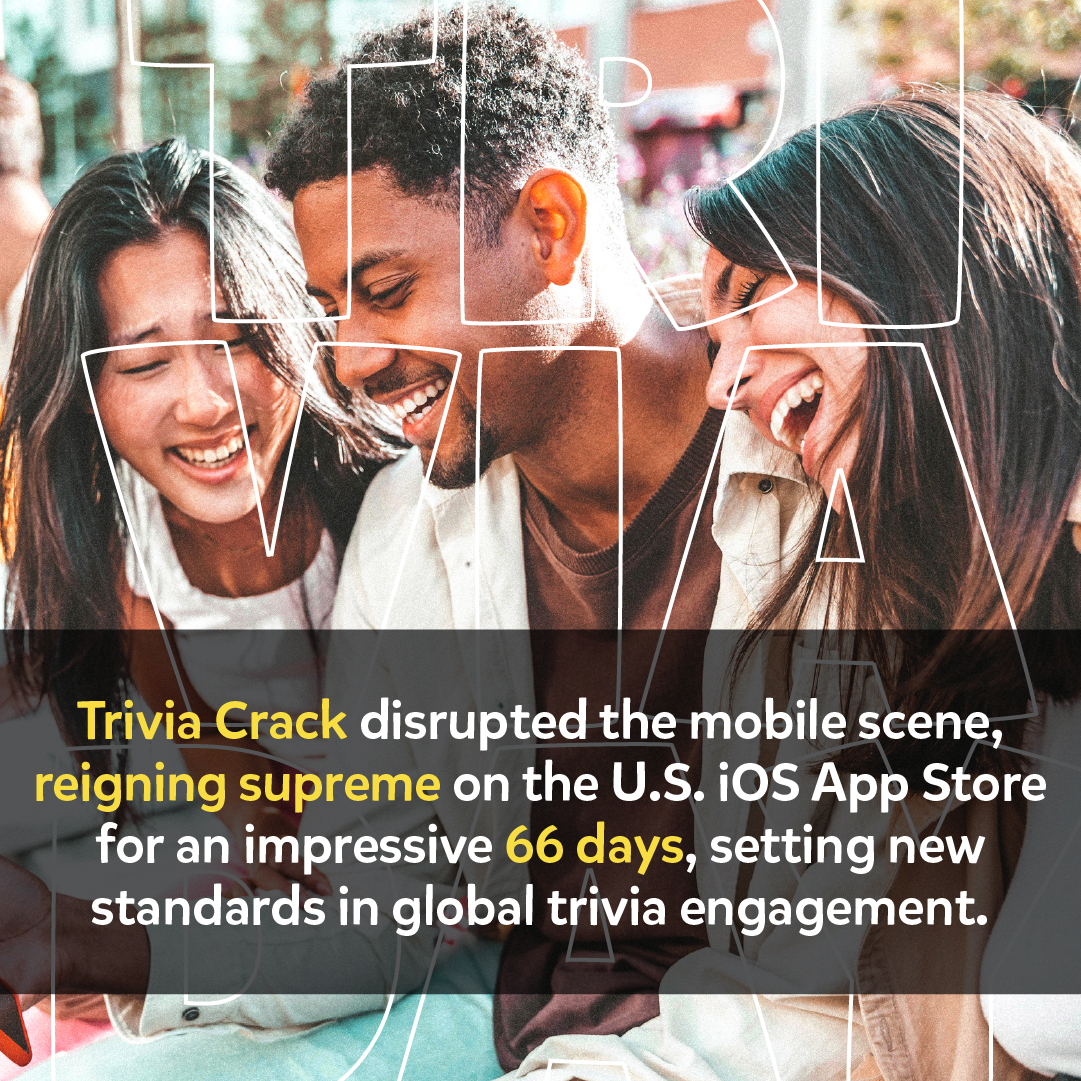
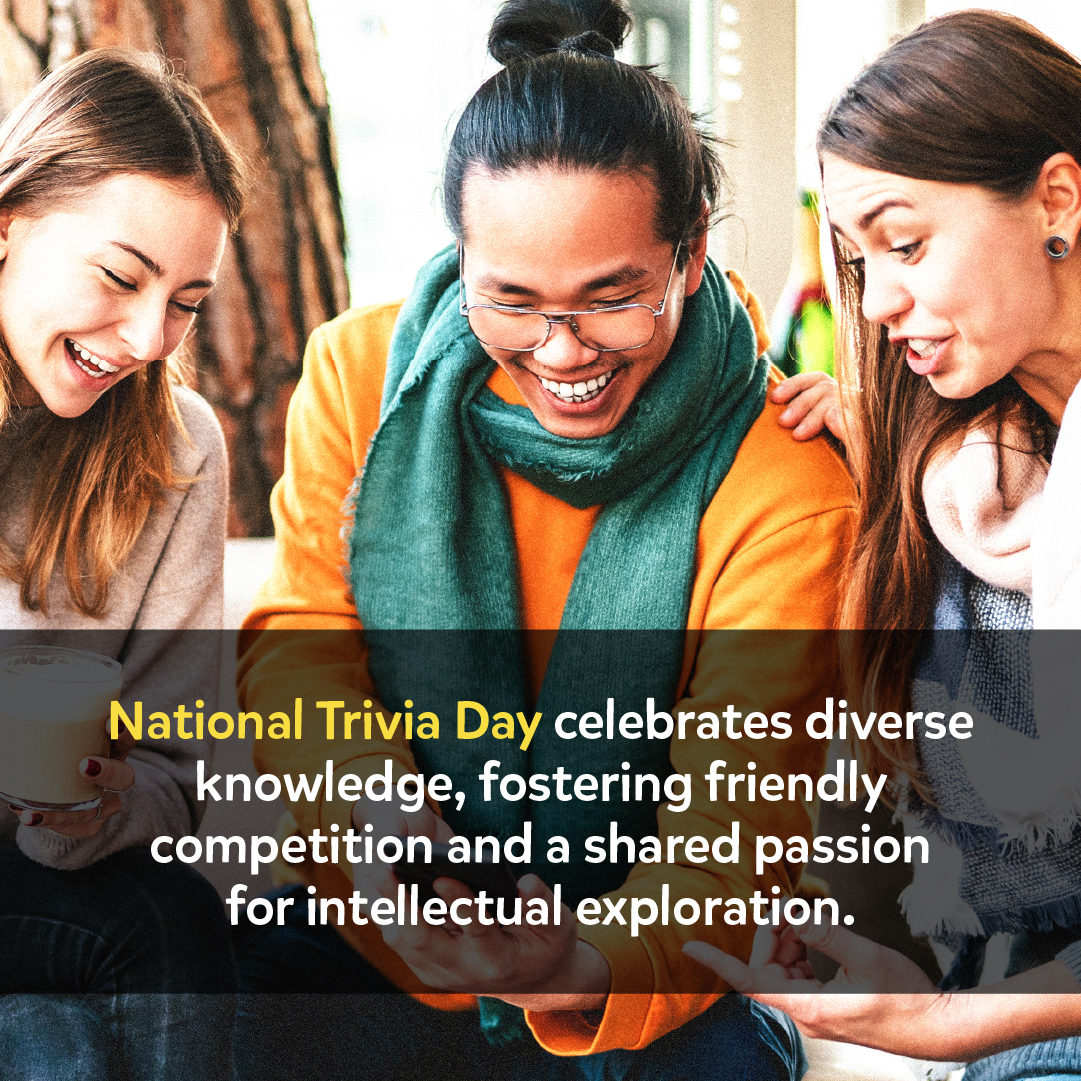
· MORE STORIES ·
Trivia Crack 2 is now Trivia Crack Retro, inspired by the original classic
A new identity that celebrates the original game and keeps the experience fans love.
Etermax XR Studio Brings Halloween Thrills to VR Fans with Airport Security Guard & Animal Guys
Etermax XR Studio is kicking off the Winter Season on its hit VR titles Airport Security Guard and Animal Guys with spook-tacular Halloween-themed bundles and updates. The Airport Security Guard Halloween Bundle Trailer can be viewed here. The Animal Guys Halloween Bundle Trailer can be viewed here. The Halloween updates and bundles are available globally on Meta Store for VR players, throughout the month of October.



